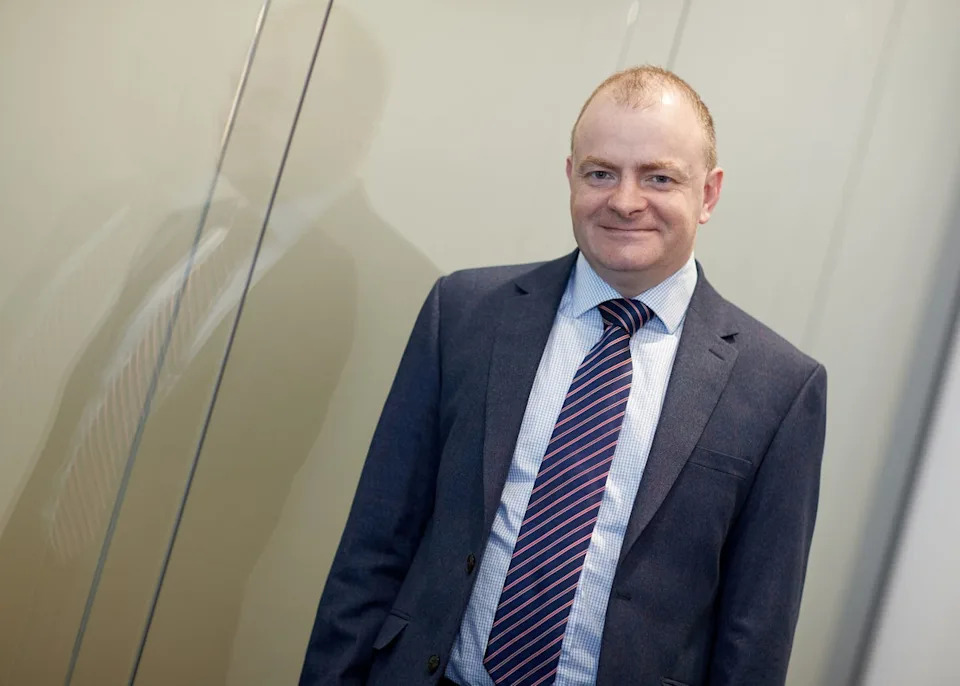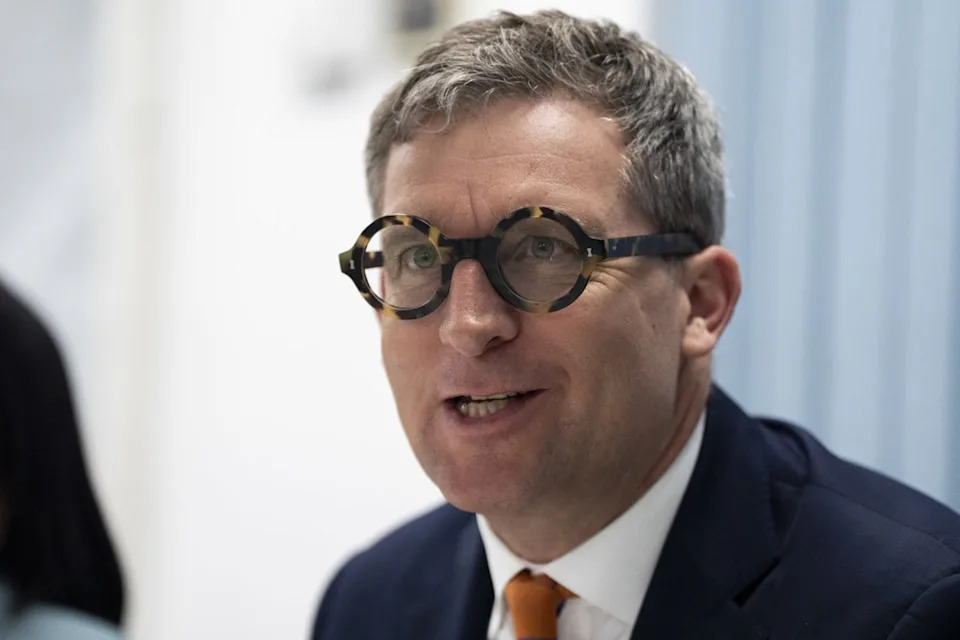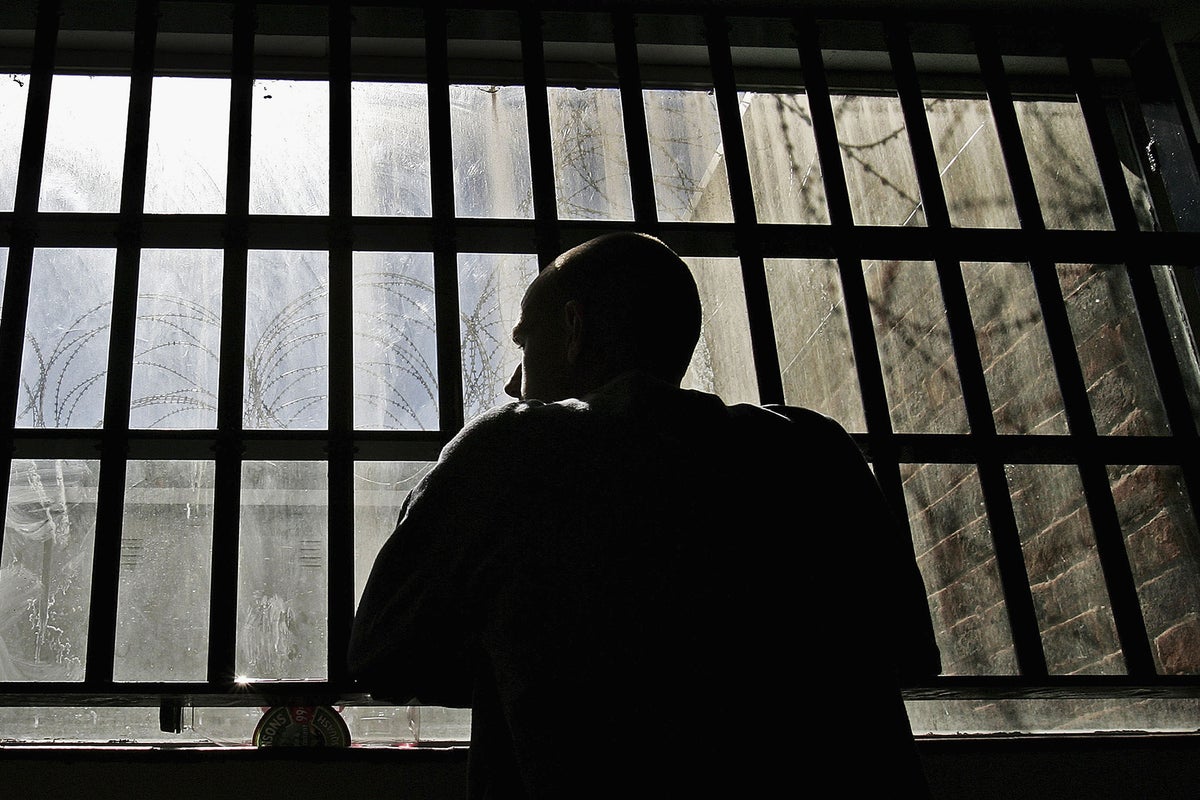The probation watchdog chief for England and Wales has urged Keir Starmer to finally put an end to the scandal on indefinite jail terms, warning prisoners are “trapped in the system”.
Martin Jones called for ministers to look carefully at fresh proposals to help almost 2,500 prisoners still behind bars under now-outlawed Imprisonment of Public Protection (IPP) jail terms.
The chief inspector of probation, who previously led the Parole Board for nine years, told The Independent: “I genuinely think that IPP prisoners continue to be failed by the system as a whole.”
He said the government faces a “stark choice” of leaving such prisoners to languish – which he fears will inevitably result in many dying in prison – or taking action to put right what has long-been described as a stain on justice system.
The jail term, described as “psychological torture” by the UN, was scrapped in 2012, but not retrospectively, leaving those already jailed incarcerated indefinitely.
Victims of the scandal, whose tragic cases have been highlighted by The Independent, include: Leroy Douglas, who has served almost 20 years for robbing a mobile phone; Thomas White, 42, who set himself alight in his cell and has served 13 years for stealing a phone; and Abdullahi Suleman, 41, who is still inside 19 years after he was jailed for a laptop robbery.

Chief inspector of probation Martin Jones said sweeping justice sector reforms offer a ‘real opportunity’ to end IPP scandal (PA)
Successive governments have refused to resentence IPP prisoners. At current release rates, the number trapped in prison under the open-ended punishment is decreasing by less than 10 per cent a year – despite some prisoners having served up to 22 times longer than their original sentence.
In a rare interview, Mr Jones said new measures put forward last month by the Howard League for Penal Reform and former Lord Chief Justice Lord John Thomas have “real merit”, provided there are sufficient safeguards for the small minority whose original offence may have warranted a life sentence.
Their recommendations include giving IPP prisoners a release date within two years of their next parole review, reducing the numbers recalled to custody for breaching licence conditions and a package of mental health support on release.
In a report being considered by ministers, Lord Thomas and a panel of experts warned that without action, some IPP prisoners will simply die in custody.
At least 94 prisoners haven taken their own lives in custody after losing hope of ever getting out. A further 37 self-inflicted deaths have taken place in the community under strict licence conditions which leave offenders in fear of being hauled back to prison indefinitely for minor breaches.
“I 100 per cent agree with the assessment that if you merely wait for the current system as it stands the way the IPP will resolve is people will die in prison…through natural deaths in custody or self-inflicted deaths,” Mr Jones said.
“It worries me that I think we would still be talking about IPPs in 10 or 20 years with the current situation.”

Clockwise, from top left: Leroy Douglas, Luke Ings, Liam Bennett, Wayne Williams, Abdullahi Suleman, Yusuf Ali, James Lawrence and Thomas White are all trapped on IPP sentences (Samantha Ings/Margaret White/Mandy Lawrence/Jacqueline Ali /Handout)
He said the majority of IPP prisoners received an original tariff of four years or less, which indicates they have not committed the most serious crimes.
He added: “If you have still got people serving the IPP sentence some 30 years after the sentence was created, you would have to be sure those people committed serious crimes.
“I am far from convinced that a significant number of those people have committed an offence that would never merit 10 years in custody let alone 30 years in custody and I think that would be an affront to justice.”
All too often, IPP prisoners find themselves “trapped in the sentence itself” as they struggle to meet the Parole Board’s stringent release test.
He also backed recommendations for IPP recalls to be overseen by a district judge or senior Parole Board member.
At the moment, recall decisions are made solely by probation workers, who are often struggling with a heavy caseload. These decisions have life-changing ramifications, with IPP prisoners serving another 25 months on average before they are re-released by the Parole Board.
“I think there is considerable merit to having some judicial oversight,” he added, noting many other countries require judges or the parole board to make recall decisions.
“Especially when that person may spend two years in custody – that is the equivalent of a four-year sentence.”
By comparison, magistrates’ courts in England and Wales only have the power to detain people for a maximum of 12 months.
He also warned far too many IPPs are being recommended for open conditions, only for their transfer to be blocked by ministers. The Independent previously revealed the Ministry of Justice refused to allow IPP prisoners to progress to an open prison in 61 per cent of cases in 2024.

Prisons minister Lord James Timpson admits there is ‘more work to do’ to help IPP prisoners (PA)
He insisted the probation system is experienced in handling complex people in the community, provided they receive adequate funding and resources.
Justice secretary Shabana Mahmood has pledged to invest an additional £700million in probation services by 2028/29 as the government brings in sweeping justice sector reforms recommended by David Gauke which will see prisoners serve more of their sentences in the community.
Mr Jones said “tags are not going to be the only answer” and to managing the changes and it essential they have enough probation officers to do the job properly.
However he said the reforms represent a “real opportunity” to address the IPP crisis as the justice system changes the balance between the prison and probation system.
“I think there is a real opportunity to look at IPPs here, particularly when the government is looking to increase the funding and capability of the probation service,” he added.
Mr Jones’ calls come after three former senior judges revealed their regrets at handing out IPP jail terms as they also backed the Howard League’s proposals.
Meanwhile an IPP prisoner was acquitted of multiple counts of causing criminal damage to HMP Frankland after using the mental toll of the jail term as a legal defence. Joe Outlaw, 39, was cleared of 12 charges but found guilty of two after he told jurors at Teesside Crown Court the jail term is “soul destroying”.
Prisons minister Lord Timpson said: “It is absolutely right that the IPP sentence was abolished.
“As the IPP annual report shows, we have significantly improved support for these offenders, with greater access to rehabilitation and mental health support.
“There is more work to do as we reduce the number of IPP offenders in custody, but will only do so in a way that protects the public.”
